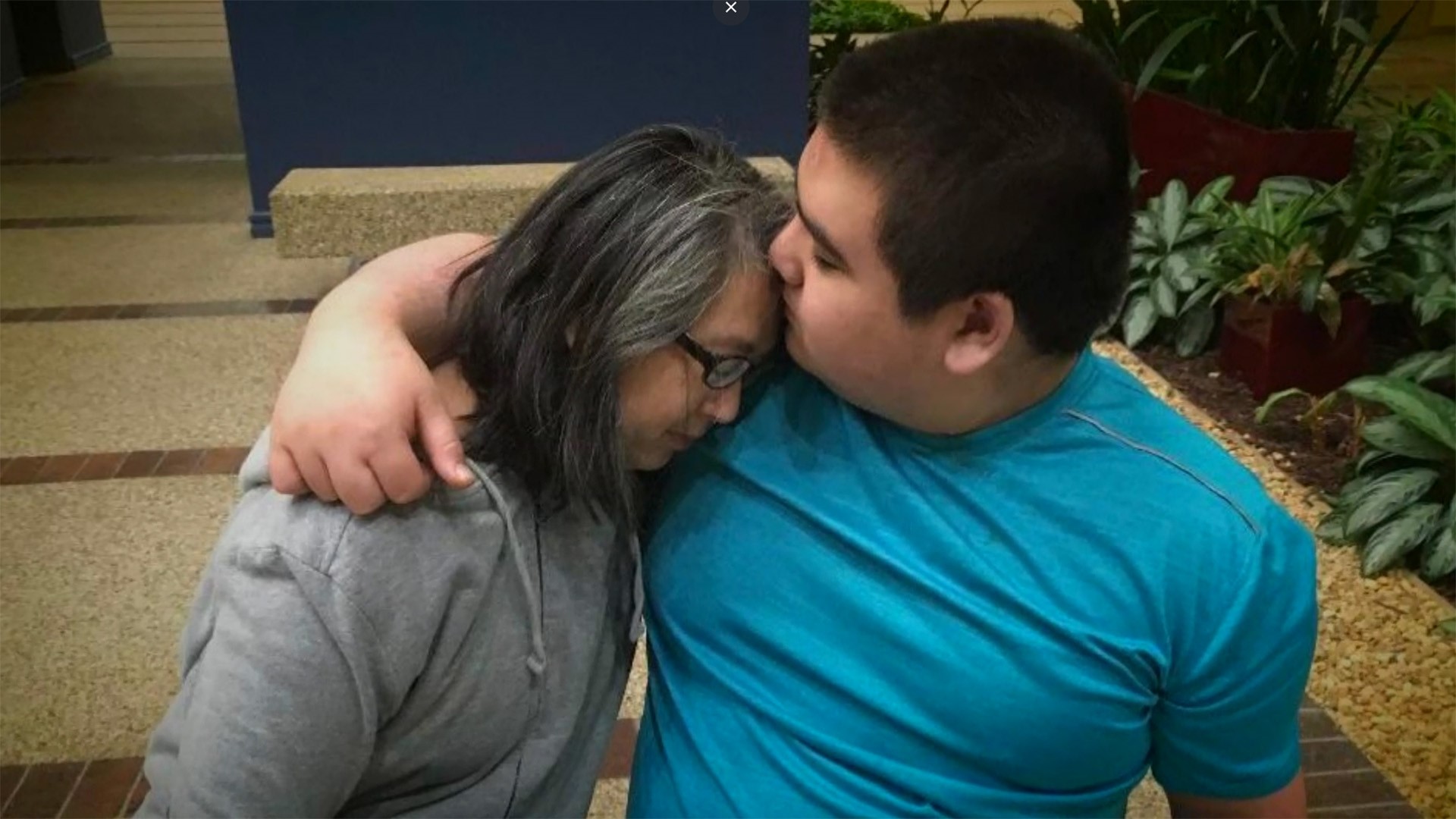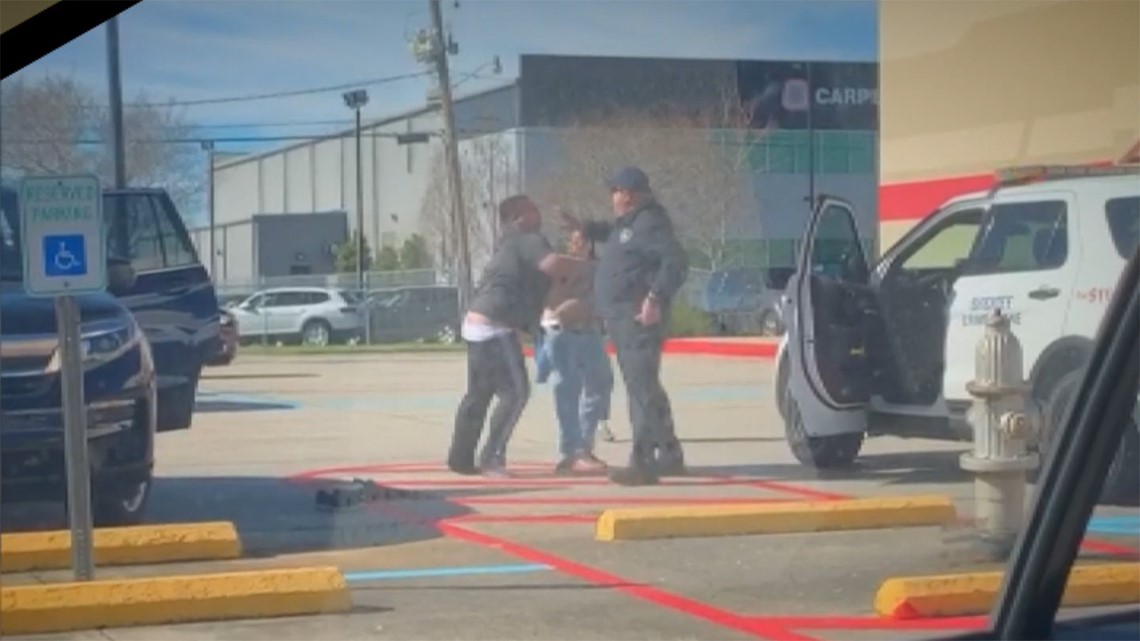'Eric shouldn't have died that day' - Was 'excited delirium' to blame?
“He didn't have those kind of words to say, I can't breathe. That's such an abstract thing, you know, breathing,” Eric's mother said.

The family of a severely autistic teen has settled its wrongful death lawsuit against the Jefferson Parish Sheriff’s Office and the shopping center where the boy died in JPSO custody in 2020 for $1.25 million.
But the parents of the 16-year-old who died, Eric Parsa, pushed for more than just money in the settlement talks. They wanted additional training for JPSO deputies in how to handle people with severe autism.
While the court case is closed, Eric’s death certificate remains a sticking point for the Parsa family as it declares he died primarily of excited delirium, a catch-all term that’s at the center of a national controversy over whether it’s being used to excuse excessive use of force by law enforcement officers.
The Laser Tag
“We had difficulty conceiving. So, when we had Eric, we were just, we were overjoyed that we were pregnant and were going to have him. And he was like our miracle child,” said Donna Lou, Eric’s mother.
The signs of autism started to surface around the age of two when Eric would repetitively wave his hands in front of his face.
“He would line up his toys in the water and get upset if they were not in order,” Lou said.


While Eric’s younger years brought the family so much joy, the boy’s ability to speak started to fade. He would say “mama” or “gasses,” referring to his mother’s glasses, but by the age of 4, he babbled.
By his teens, Eric was on the severe end of the autism spectrum with disruptive behavior disorder. Eric would periodically have violent meltdowns, but his parents say he had been making progress controlling them.
Daren Parsa, Eric’s father, said his son loved arcades. He loved putting on the laser tag vest and running through the maze. He loved earning Skeeball tickets to buy packs of cards to pour the cards out and put them back in over and over again.
The family would regularly go to the Laser Tag of Metairie on Sunday mornings when fewer people were there, in case Eric had a meltdown. The employees knew the Parsa family and knew Eric had special needs. It was high-fives all around when he entered the building.
But on January 19, 2020, something triggered Eric to melt down as they were leaving the arcade. Surveillance cameras captured the whole thing.
“We were so close to getting Eric into that car,” Daren said.
Eric started by slapping his own head, then hitting his father, biting him, attacking him as he tried to get Eric into the car, his safe space, to calm down.
“Being in a public place, we thought, you know, we had better get some help. And so someone from Laser Tag asked me. Do you need help? Do you want me to call 911 for help,” and Donna said yes. She now second-guesses that answer.
Help came in the form of JPSO Reserve Deputy Chad Pittfield. He took Eric to the ground, face down, while Daren leaned on Eric to get him to calm down. The video shows Eric bite Pittfield on the leg and Pittfield moves to try and put Eric in a prone position, face-down with his hands cuffed behind his back.
“I was down with him initially when he when they put him in the prone position. And he was calming down,” Lou said through tears, “Stroking his hand, saying, ‘Eric, you're doing a good job, Eric. You're doing a good job calming down’.”
More deputies came crowding around and one relieved Pittfield, leaning on Eric’s backside. They held him prone for a little more than 9 minutes. It turned out, that was too long. He died in the laser tag parking lot surrounded by deputies, paramedics and his parents.


“He didn't have those kind of words to say, I can't breathe. That's such an abstract thing, you know, breathing,” Lou said.
His only, and final, word during the struggle was firetruck.
“This is not a scenario where any of our deputies are trying to hurt a kid, trying to use force or even justified using deadly force. They're encountering a situation that happens in and in the course, a death occurs. No matter what side you're on, and especially in the parents’ side, they lost their loved one. They lost their child,” said Jefferson Parish Sheriff Joe Lopinto.
Excited Delirium
The Jefferson Parish Corner ruled Parsa's death accidental, writing that he died of “excited delirium from an acute psychotic episode” with obesity and prone positioning listed as contributing factors.
“Eric did not have excited delirium. He had a meltdown, outburst that was typical for him when he got upset or frustrated or overwhelmed. You know, that was part of his autism,” Lou said.
In their wrongful death lawsuit against Lopinto, the JPSO and Westgate Shopping Center, the Parsa family attorneys argued Eric's death was not caused by excited delirium, but deputies holding him prone, causing positional asphyxia, meaning, Eric couldn't breathe and his heart stopped.
Jefferson Parish Coroner Gerry Cvitanovich declined to talk about the specifics of the Parsa case. “Out of respect for the family, I'm not going to discuss the particulars of that case,” Cvitanovich said.
But William Most, one of the Parsa family attorneys, said the death classification and the lack of a formal internal affairs investigation resulting in a report by JPSO into how deputies handled the situation let the deputies off the hook.
Lopinto said homicide investigators conducted a complete and thorough criminal investigation and whether his deputies followed procedure would be flushed out by attorneys in the civil suit.
The use of the "excited delirium" cause of death is highly controversial as medical groups and activists are moving away from it, arguing that nationally it's often used to justify excessive use of force by law enforcement.
“One thing we learned is that regardless of how they classified Eric's death, the coroner's office was very clear that if the officers had not acted the way they did, Eric Parsa would most likely still be alive today,” Most said.
In a videotaped deposition of the JP Coroner’s Chief Medical Examiner, who conducted Parsa’s autopsy, Dana Troxclair was asked, “So, getting back to where the rubber meets the road, without the prone restraint, he wouldn’t die that day?” She replied, “Most likely not, yes.”
Her autopsy report noted prone positioning as a contributing factor, but excited delirium was Eric’s primary cause of death.
At 1995 bulletin issued by the US Department of Justice called positional asphyxia the cause of most in-custody deaths and defined it as a death that happens when a person's body position interferes with their ability to breathe.
Lopinto doesn’t deny positional asphyxia was, in part, to blame, but he doesn’t admit fault.
“The magistrate said it best during a settlement conference: our deputies kept him there because they were being too nice. They were, they let mom talk longer, communicate longer than they should have. Right? And that's partially to blame. That goes both ways,” he continued, “that will certainly be part of their training. But I don't think it deserves discipline.”
The Training
Crisis intervention training on how to handle mental health situations has been a robust part of the JPSO for some time, Lopinto said, but only one of two deputies who held Eric down that day went through it.
It is unclear if autism-specific training was a part of that.
Medical experts say obesity puts a person at greater risk of positional asphyxia when they're face-down with hands behind their back because the extra weight adds extra pressure on their diaphragm and internal organs, making it harder to breathe.
Eric Parsa was obese and his autism put him at even greater risk, something the Parsas think all law enforcement officers need to know.
“Hopefully this will never happen again. And you know, law enforcement officers have a million things they have to deal with. They have extremely difficult jobs. But at the same time, Eric shouldn't have died that day,” Daren said.
A training key on how police should handle people with autism from the International Association of Chiefs of Police, or IACP, warns, "Be aware that people with autism may have underdeveloped trunk muscles and may not be able to support their airway. After takedown, the individual should be turned on his or her side and be transferred into an upright position as soon as possible to allow normal breathing to occur."
When the Parsa family settled their wrongful death suit in September, the two IACP training keys became a part of the settlement agreement.
“The Jefferson Parish Sheriff's Office will have to retrain all its field officers next year with a special training program developed by someone outside the agency,” Most continued, “It'll be specifically about how officers should interact and use force when they're confronted with someone who has autism, including severe autism like Eric had.”
JPSO will pay the Parsa family $750,000 of a $1.25 million total settlement. It’s one of the largest wrongful death settlements the JPSO has agreed to on record.
“The reality of it is, if I thought my deputies did something wrong, I'd been settling with them for multiple multimillions. I don't believe that that was the case,” he said. “I think it's a case where even if we win at trial, we still lose. You know, this child we can't bring back this child is never going to be able to go back to their parents.”
The family said the training requirement gave them some peace.
“So Eric didn't die in vain, you know? I mean, so this, this wasn't just for nothing. That's something,” Daren said.
Now, instead of Sundays at the Laser Tag, Lou often spends them with Eric at the cemetery where he’s entombed. She said it’s a special place to feel closer to her missing piece.

